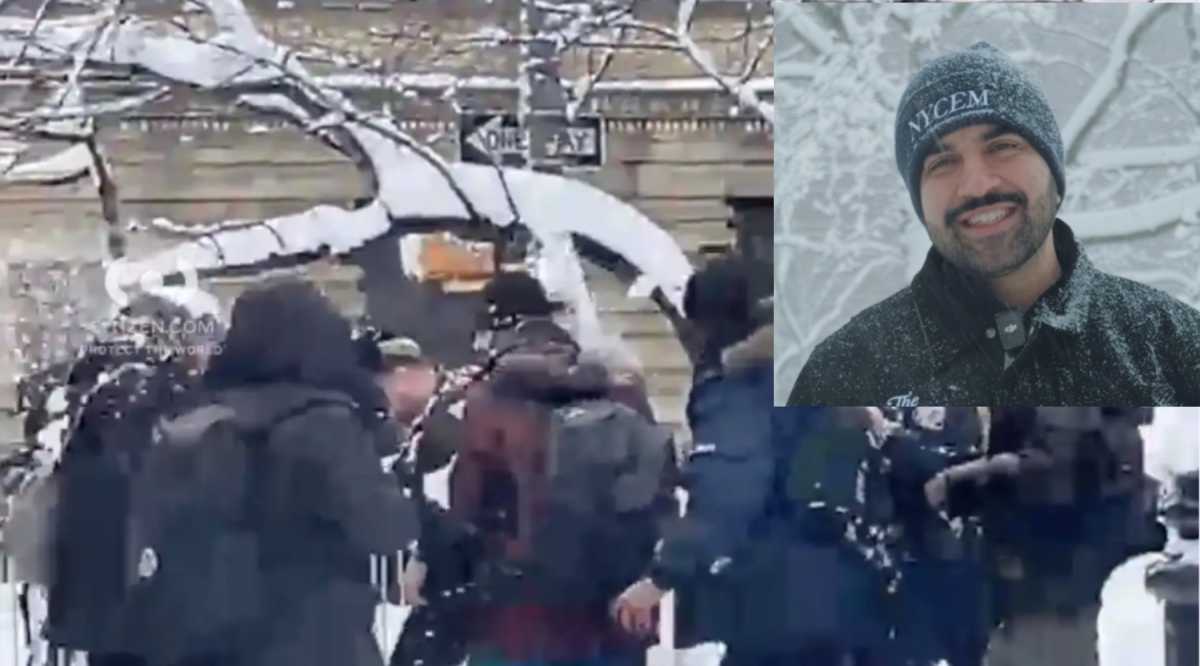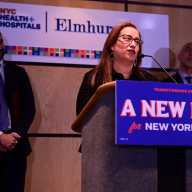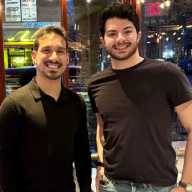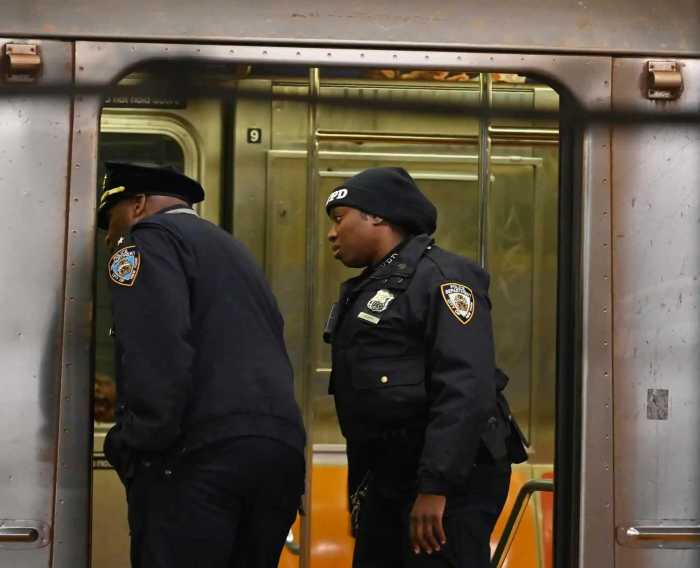Three local high school students won Congresswoman Grace Meng’s Congressional App Challenge by developing an app to help users find the nearest accessible bathroom.
First place winners Rachel Wu of Fresh Meadows, Yuan Gao of Flushing and Eugene Xu of Bayside are all seniors in the Bronx High School of Science, a prestigious specialized high school with a focus on STEM.
Their tech creation, Nurgent, maps the closest free public restrooms across the five boroughs, including those at cafes and retail stores. The information was scraped from online databases and imported into coding software.
They argue that in emergencies, searching for the nearest bathroom online will lead to dozens of results to sift through or dirty public restrooms in parks. Their app, which features a simple to use interface, presents a solution as explained in a video as part of their submission.
“I congratulate these talented students for winning this year’s app competition, and applaud Rachel, Yuan and Eugene for coming up with a unique and innovative app that can help many people when they are out in public,” said Congresswoman Meng in a statement announcing the winners. “I continue to be amazed by the great tech skills that are exhibited by students in our communities.”
Across the country, 11,334 middle and high school students in teams entered 3,645 fully functioning apps in the contest. Each representative runs their own contest as part of the national contest.
Since the inception of the Congressional App challenge in 2015, over 58,000 students have created thousands of functional apps. This year in particular set a new record for most student registrations and apps created. The goal of the competition is to encourage students to pursue careers in computer science and learn how to code.
The winning apps will be showcased in the U.S Capitol building, where the winners were also invited to a #HouseofCode reception for winners across the country. Their apps will also be displayed on the House of Representatives website.
The Nurgent’s app interface features three separate pages: a map through Google Maps, a list of locations with a corresponding rating and a profile page that displays reviews of the bathrooms that mention cleanliness and accessibility.
“New Yorkers have the shared experience of being unable to find a clean, accessible or free bathroom,” said Wu, Gao and Xu in a statement. “We’re extremely grateful to win this award, and we hope to publish our app in the near future to help prevent this modern issue.”
The winners from Meng’s district were selected by a panel of local judges in academic and tech fields locally. The six judges included Ying Zhou, Executive Director of the Tech Incubator at Queens College and Jin Hyun Bae, Assistant Director of Digital Inclusion for the Programs and Services Department at the Queens Public Library.
They granted second place to Erin Yalin Cai, Frankie Chong and Chiming Wang who collectively created an app to help users find personalized social welfare programs using artificial intelligence.
A new bias headline detector app, created by Aaron Niyazov and Jordan Krishnayah, came in third place. The app considers inflammatory words and the overall sentiment of the headline to determine a bias rating.


































